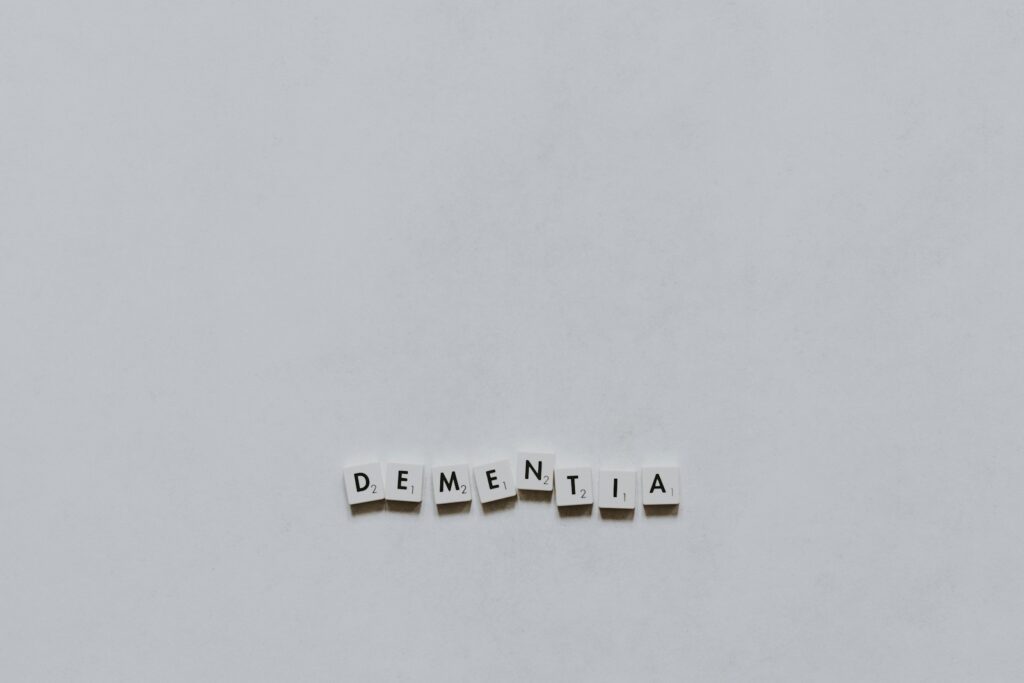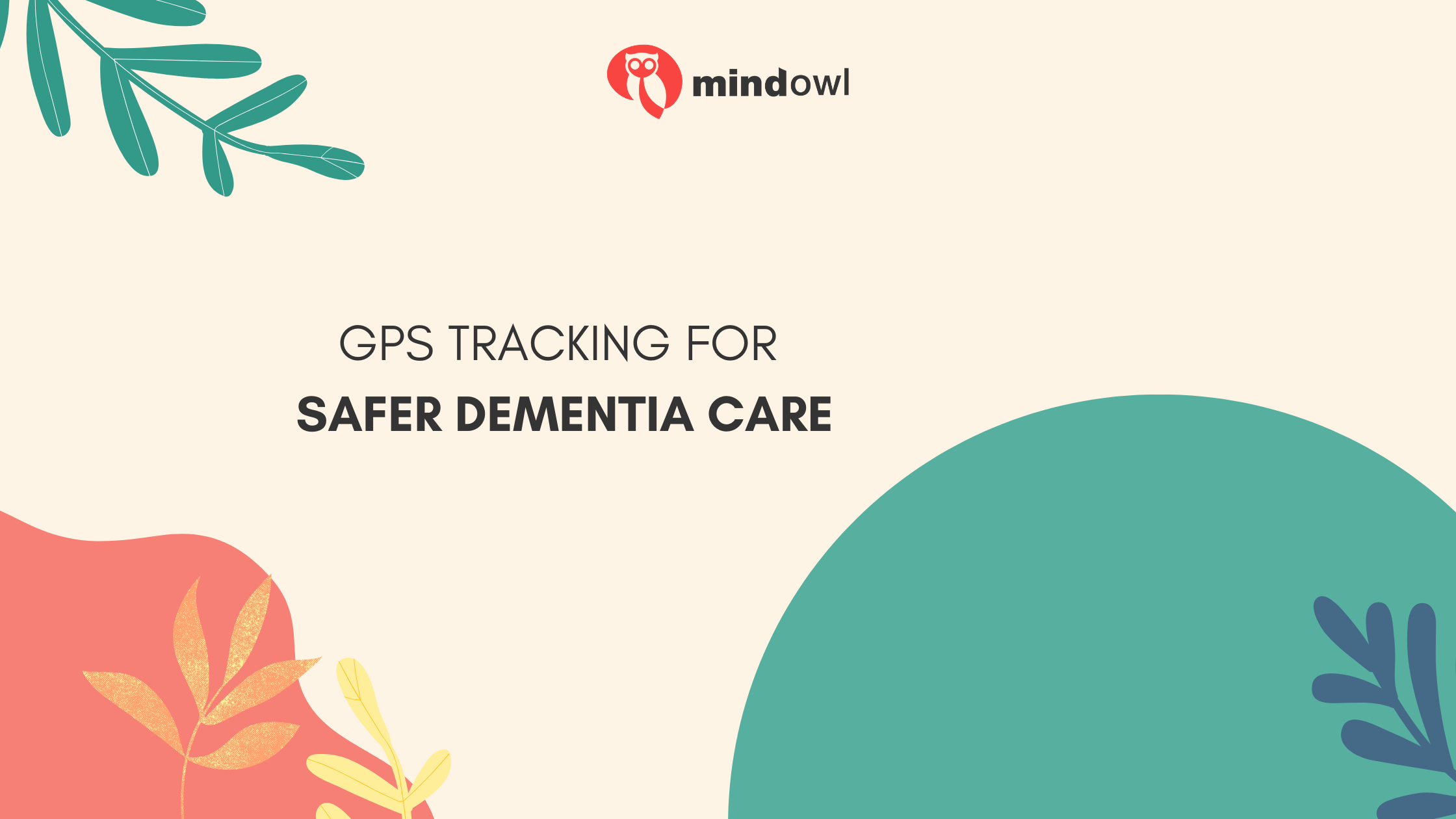Supporting a loved one with dementia is a journey filled with decisions focused on their safety and well-being. While it can be challenging, new approaches are making it easier and more secure through a combination of mindful practices and advanced technology.
With more stories emerging of dementia patients wandering from home, the need for reliable safety measures is clear. GPS tracking technology offers a practical solution, allowing caregivers to monitor and protect their loved ones, which eases the worry that often comes with caregiving.
In addition, mindfulness practices like meditation provide emotional support, helping individuals with dementia find moments of calm, reduce anxiety, boost mood, and potentially slow cognitive decline.
This powerful combination of technology and mindfulness enhances the quality of life for those with dementia and gives caregivers confidence and peace. In this blog post, we’ll explore how GPS tracking and meditation create a holistic approach, promoting safety, comfort, and well-being for dementia patients and their families.

How Can Meditation Support Dementia Patients?
Dementia often brings confusion, disorientation, and a loss of familiarity, turning daily tasks into sources of stress or risk. As a caregiver, you may feel the weight of constantly safeguarding your loved one’s comfort. Meditation offers a transformative approach to support both dementia patients and caregivers, promoting calm and mindfulness in everyday life. Here’s how it can help:
Handling Memory Loss and Cognitive Decline
Memory loss is often one of the most challenging aspects of dementia, affecting your loved one’s ability to recall people, recent events, or even familiar tasks. Meditation can support cognitive health by promoting moments of mental clarity and focus. Through short, regular sessions, meditation provides a structured approach to help ease anxiety and manage feelings of confusion.
Improving Disorientation and Situational Awareness
As dementia progresses, familiar spaces can feel confusing or overwhelming to your loved one, often leading to distress or disorientation. Meditation can support them by cultivating mindfulness, which reduces moments of panic and fosters a calmer state of awareness.
With consistent practice, they may experience fewer episodes of severe disorientation, helping them feel more connected to their surroundings and less overwhelmed. This sense of grounding can bring comfort, making daily navigation easier and allowing your loved one to feel more at home in their environment.
Coping with Routine Changes:
Routine provides a sense of comfort for dementia patients, and any unexpected changes can cause feelings of agitation or distress. Meditation helps patients approach these shifts with a calmer mindset, building patience and adaptability over time. This practice encourages a smoother transition when introducing new routines or support tools, helping patients gradually adjust to changes in a way that feels natural and supportive.
Managing Emotional Distress and Depression
Disorientation from dementia can often bring feelings of agitation, distress, or depression for your loved one. Meditation offers a way to gently guide them toward positive self-reflection, helping to ease these emotional challenges. With regular practice, meditation techniques can reduce stress, calm emotional discomfort, and lessen moments of frustration or anger, bringing a sense of peace and stability to their daily life.
Reducing Wandering Tendencies
Wandering behaviors of your loved ones suffering from dementia keep you always worried. Due to memory loss, previously familiar environments become challenging for them to navigate. With regular meditative practices, they develop mental clarity and awareness about their surroundings that lessen impulsive wandering tendencies.
How Do GPS Trackers Help Keep Loved Ones with Dementia Safe?
Caring for a loved one with dementia is complex, especially when wandering is a concern. Here are ways GPS trackers provide added safety and support:
Real-Time Location Tracking
Instantly knowing where your loved one is offers reassurance and relief from the constant worry of wandering. With real-time tracking, caregivers can quickly locate their family members, providing a balance between safety and independence. You can consider getting Family1st GPS tracker if you want to have real-time location updates.
Route and Habit Monitoring:
GPS trackers don’t just track location; they reveal patterns by logging routes and frequent destinations. This helps caregivers anticipate familiar paths, making it easier to respond proactively if a loved one wanders, ultimately creating a safer environment.
Geofencing
GPS trackers with geofencing features can further reduce stress by setting designated safe zones. If the patient wanders off, caregivers receive alerts and enable swift responses before minor changes escalate into dangerous situations.
Compact design
The compact design of GPS devices allows caregivers to help patients wear or carry the device without any inconvenience or anxiety and encourages continuous use.
GPS tracking devices add peace of mind by reducing the caregiver’s need to supervise constantly. You can rely on real-time tracking while giving patients independence and use location updates to keep them safe and sound. This approach respects the patient’s dignity while providing support in challenging situations.
Top Tips for Dementia Caregivers: Combining Meditation and GPS Tracking
Managing the complexities of dementia caregiving is no easy task, but incorporating meditation and GPS tracking can make a positive difference. Here are some practical tips for caregivers supporting loved ones with dementia:
- Build a Routine with Meditation: Try integrating meditation into the daily routine. It can bring a sense of calm and mental clarity, offering stability that helps patients feel more at ease. Familiar, regular practice can help manage emotions, bringing comfort through routine.
- Keep Communication Simple and Mindful: Engage in clear, straightforward conversations and practice brief meditation exercises together. This shared activity can help both the caregiver and patient stay focused, fostering patience and understanding.
- Enhance Safety with GPS Tracking: Ensure a secure home environment with GPS technology to help manage wandering risks. A portable GPS device worn by the patient allows caregivers to monitor their location, offering an extra layer of protection without restricting independence.
- Combine Physical and Mental Activities: Pair mindful meditation with cognitive exercises to encourage calmness and manage stress. A GPS tracker adds reassurance, letting patients move within safe areas while caregivers watch over them remotely.
- Take Breaks for Self-Care: Caregiving can be exhausting, so it’s important to care for yourself as well. Meditation can help caregivers manage their own stress, while a GPS device offers peace of mind, allowing brief respites without compromising safety.
- Find Community and Support: Connecting with other caregivers can provide comfort and useful advice. Support groups, like those offered by the Alzheimer’s Association and the Family Caregiver Alliance, can be valuable resources, easing the caregiving journey with shared experiences and guidance.
Incorporating these tools and routines can provide caregivers and patients with a sense of security and calm, making the caregiving experience a little lighter.
Trusted U.S. Support Resources for Dementia Caregivers
Prominent support groups in the United States are offering dedicated services to assist individuals affected by dementia as well as support their caregivers. Some of the reputed support organizations are as follows:
- Alzheimer’s Association Support Groups: This organization offers in-person and virtual support groups, plus the online community.
- Alzheimer’s Foundation of America (AFA): AFA provides online and phone-based groups facilitated by licensed social workers.
- Family Caregiver Alliance (FCA): This organization offers specific resources for family caregivers, including educational tools and support.
- Dementia Society of America: It focuses on education, resources, and enrichment programs for families affected by dementia.
- Lewy Body Dementia Association (LBDA): Supports caregivers of individuals with Lewy body dementia through virtual meetings and forums.
Conclusion
In combining mindful meditation practices with the practical aid of GPS tracking, caregivers find a balanced approach to managing the challenges of handling dementia. Meditation allows calmness and self-reflection, and GPS tracking provides a sense of safety and control. It creates a supportive framework to promote resilience, relaxation, and safety, helping dementia patients and caregivers handle the complexities of dementia with compassion and sensitivity.
MindOwl Founder – My own struggles in life have led me to this path of understanding the human condition. I graduated with a bachelor’s degree in philosophy before completing a master’s degree in psychology at Regent’s University London. I then completed a postgraduate diploma in philosophical counselling before being trained in ACT (Acceptance and commitment therapy).
I’ve spent the last eight years studying the encounter of meditative practices with modern psychology.

